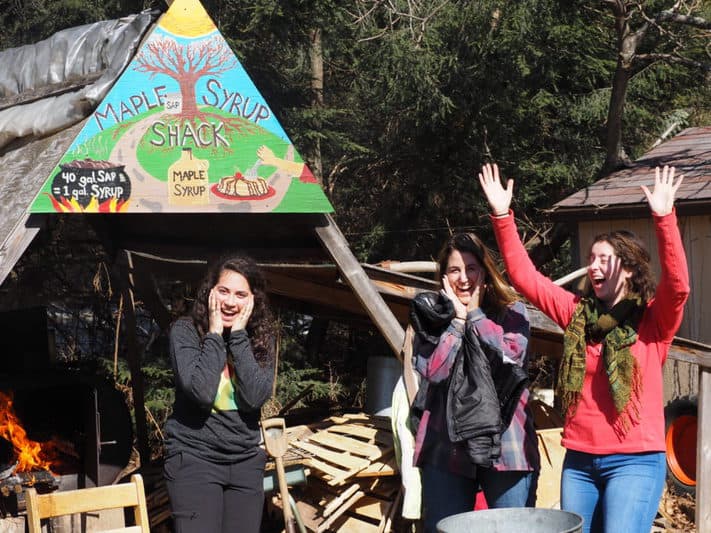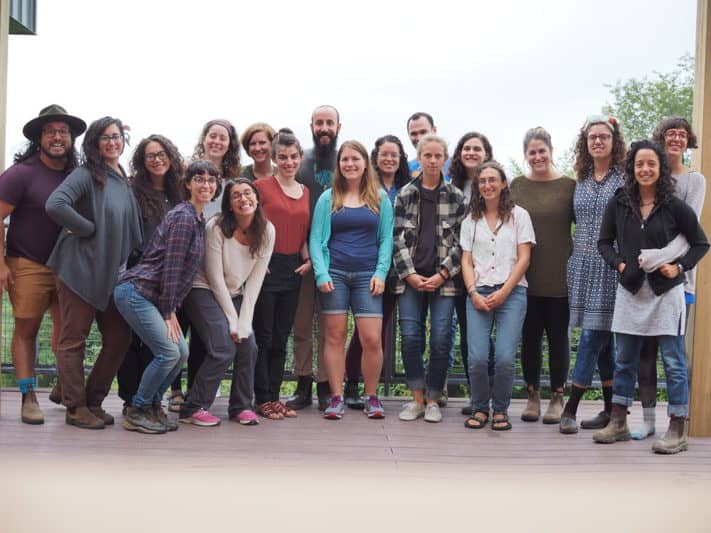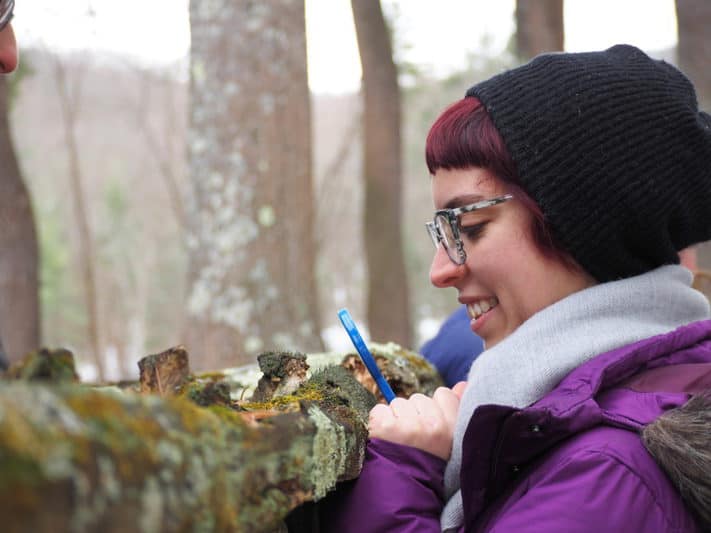We were pleased and proud to graduate the second cohort of JOFEE Fellows last month at our closing seminar at the brand-new Urban Adamah farm and community center in Berkeley, CA. With this cohort’s sixteen fellows, we have now graduated 33 fellows who collectively have impacted close to 60,000 participants nationwide. Cohort three will see twenty new fellows working in fifteen host organizations. Wow!
Closing seminar was a wonderful experience in celebrating the cohort’s individual and collective accomplishments and learning about the tremendous work of our partners at Urban Adamah. In the words of one fellow:
“I’m blown away by the ways in which this group of people who have only come together three times over the course of a year can support each other in such deep ways. It was a joy and an honor to witness each member of the cohort as they recalled their journey and told stories from the year, and I felt totally held by the group.”
This was yet another very special and talented cohort. You can see some of their final presentations here and even catch up on the live Facebook stream here.

JOFEE Fellows Miki, Brittany, and Becca getting syrupy during Cohort 2 orientation – my how they’ve grown!
In reflecting on this cohort, I’d like to share a version of the closing remarks I gave to the fellows during our closing ceremony:
This was quite a unique cohort when we gathered for our orientation and training intensive in February 2017 at Isabella Freedman Jewish Retreat Center. Already, 2017 had been a year in which for many of us the things we either thought we knew were shaken to their foundation, or the ugly truths we knew were simmering just below the surface boiled straight up to the top. It would be a challenging and traumatizing year in a myriad of ways: socially, psychologically, and for many physically.
2017 was also a year which in many ways also focused us and stripped away some of the self-protective armor with the knowledge that exposing vulnerability for one meant empowerment for others. The #metoo wave, for example, that showed how overwhelmingly prevalent sexual abuse and harassment is in our culture and that has taken down numerous men who abused their positions of power and influence; the judges who ruled Trump’s travel ban unconstitutional, and the thousands who made their voices clear that excluding people need was not the right way for us to be in the world.
As this cohort came together in February, spent orientation and training together, and then began or continued their work throughout the country, I felt inspired by seeing the strength in each of them as educators, as practitioners, as thinkers, as community members; by seeing the joy with which they brought songs and teachings to each other, or baked special birthday cakes for someone’s simcha celebration.
We also saw during that time how the quieter, intellectual nature of this cohort would begin to take shape. By the time we came back together for midyear seminar it became clear to me and to the entire cohort how unique and quietly powerful this collective identity had become. The ways in which they challenged themselves individually and held each other collectively spoke to an evolving sense of how leadership can and should manifest itself beyond solely the typical routes we commonly ascribe or assume.
In the non-profit and educational world we sometimes or frequently talk about “service.” Perhaps in the context of social service, or a “year of service” like AmeriCorps or Avodah, or “service-learning opportunities” for participants in learning-oriented programs. We think about how service differs from other types of work and many of us here in this circle and throughout the JOFEE world think actively about the type of work we are doing or want to be doing and how it nourishes both ourselves and others literally and figuratively.
During closing seminar, Sarah Rovin (Pearlstone Center) led us in learning that beautifully connected to some of our Shabbat learning from our first seminar and took us deeper into the question of what it means for us to work and be of service. We looked at “melacha” — a concept of work we might refer to as the work of “active creation.” Often we contrast this work with “avodah” — also a word translated as work, but associated with the service of the Temple and later with our morning spiritual practice.
During Sarah’s session, I was struck by a different word translated in the English as “service.” This word was shemesh. Here we were seeing it in the context of a post-Temple reality when melacha and avodah in the context of creating and servicing within this holy space was no longer possible in the ways our ancestors had originally envisioned. Shemesh was a new and different form of service.
In other contexts we see shemesh as the candle that lights the flames of the Hanukkiyah, and as the role of the person who tends to the Torah scrolls in a synagogue. So we might think of the shemesh as both an igniter of holy flame and keeper of ancient wisdom, learning, and tradition.
What a perfect metaphor for the work we do as JOFEE professionals, as igniters of divine energy.
I’ve noted before about how the first few generations of JOFEE practitioners brought a wave of innovative new organizations and practices into the world. The word used for the particular subset of this group that went through Adamah and Teva is “Adva” – which means ripple. The ripples of those impacts has clearly spread.
This cohort will, I have no doubt, create many of their own ripples as they continue moving deeper into their work and into the JOFEE world. As they do this work, my blessing to them was that they are able to keep Melacha and Avodah and Shemesh equally in mind — doing Melacha work that creates tangible manifestations of holiness in the world; spiritual Avodah work that strengthens our individual and collective connection to the divine; and the Shemesh work of ignition that both keeps the ancient wisdom while igniting the pursuit of further wisdom and growth of holiness in the world. In doing so, may they carry the spirit of this cohort, its energy and wisdom and nurturing power, into all the work that we do.
—
Yoshi Silverstein is Director of the JOFEE Fellowship. He is uplifted by the work of the fellows and honored to support them in impacting change across the country.






Comments are closed.